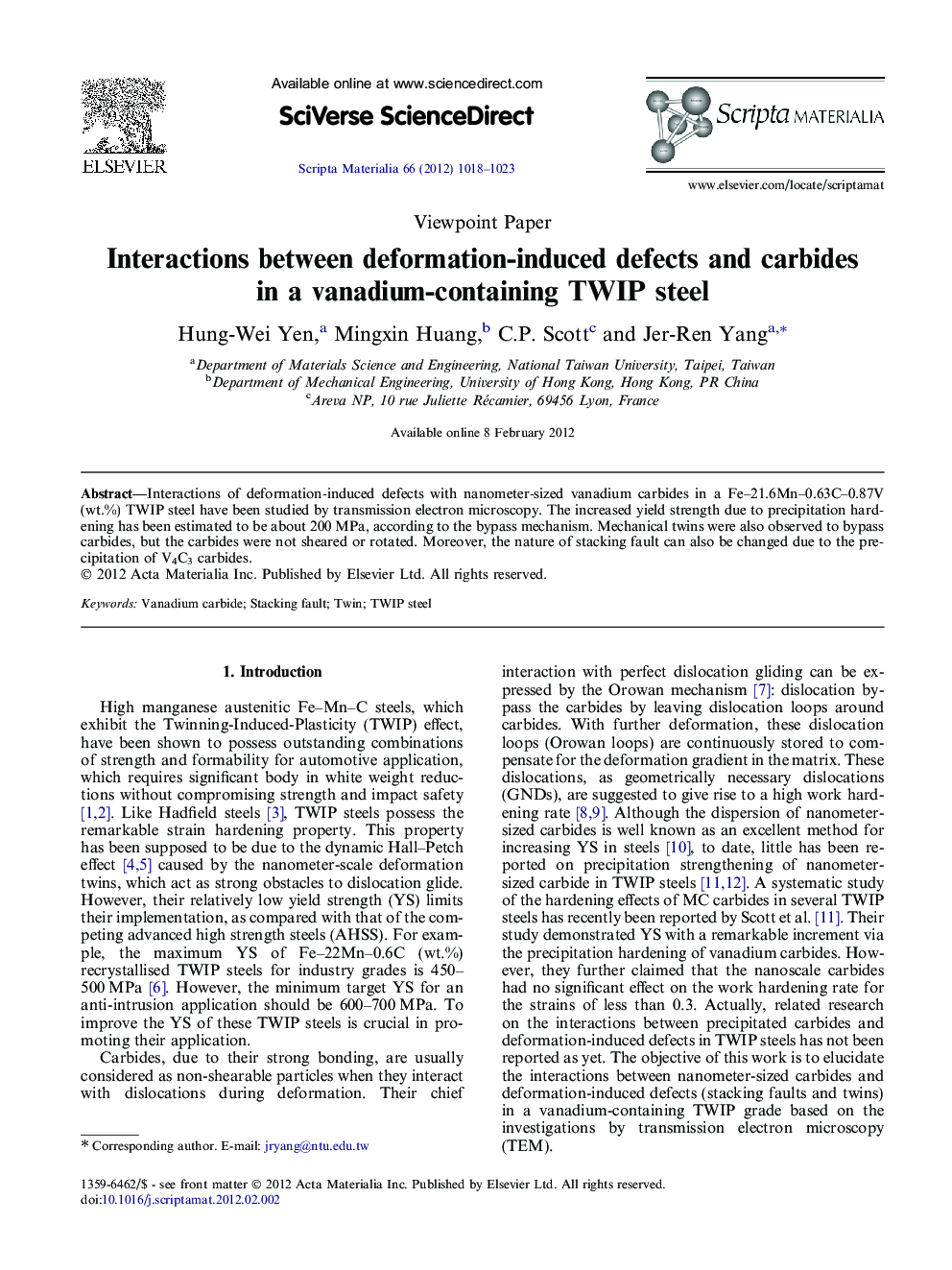| Article ID | Journal | Published Year | Pages | File Type |
|---|---|---|---|---|
| 1499633 | Scripta Materialia | 2012 | 6 Pages |
Abstract
Interactions of deformation-induced defects with nanometer-sized vanadium carbides in a Fe–21.6Mn–0.63C–0.87V (wt.%) TWIP steel have been studied by transmission electron microscopy. The increased yield strength due to precipitation hardening has been estimated to be about 200 MPa, according to the bypass mechanism. Mechanical twins were also observed to bypass carbides, but the carbides were not sheared or rotated. Moreover, the nature of stacking fault can also be changed due to the precipitation of V4C3 carbides.
Related Topics
Physical Sciences and Engineering
Materials Science
Ceramics and Composites
Authors
Hung-Wei Yen, Mingxin Huang, C.P. Scott, Jer-Ren Yang,
